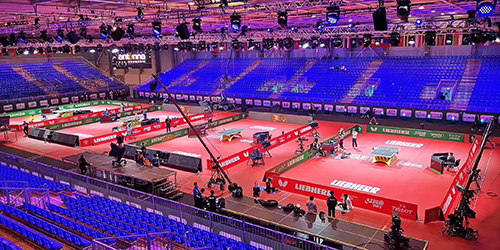10 月 . 04, 2024 00:49 Back to list
rubber flooring playground surfaces
Rubber Flooring for Playground Surfaces A Safe and Versatile Choice
When it comes to selecting the best surfacing material for playgrounds, safety, durability, and maintenance are paramount. Rubber flooring has emerged as one of the top choices for playground surfaces due to its numerous benefits. This article explores the advantages of rubber flooring for playgrounds, highlighting why it is an excellent investment for child-friendly spaces.
Safety First
The foremost concern for any playground is the safety of its users, especially young children. Rubber flooring significantly reduces the risk of injury from falls, which are among the leading causes of accidents on playgrounds. Unlike hard surfaces such as concrete or asphalt, rubber flooring provides a cushioned surface that absorbs impact. Various types of rubber play surfaces are designed to meet specific fall height standards, ensuring they can effectively minimize injuries.
Durability and Longevity
Another significant advantage of rubber flooring is its durability. Unlike traditional materials, rubber can withstand the rigors of daily use, extreme weather conditions, and repetitive impacts without deteriorating. High-quality rubber surfaces resist fading from UV exposure, tearing from heavy use, and damage from vandalism. As a result, playgrounds with rubber flooring often require less frequent replacement than those with other surfacing materials.
Rubber flooring comes in various forms, including tiles, poured-in-place surfaces, and mats. These options ensure that playgrounds can be tailored to meet different aesthetic and functional requirements. Whether it’s bright, vibrant colors or patterns that blend seamlessly with the surrounding landscape, rubber flooring can significantly enhance a playground’s visual appeal.
Low Maintenance Costs
rubber flooring playground surfaces

In addition to being durable, rubber flooring is also low-maintenance. It is resistant to mold, mildew, and pests, making it easier to clean and maintain. Regular cleaning usually involves simple surface washing or hosing down to remove debris and dirt. Unlike grass or wood chips, which often require replacement or replenishment, rubber surfaces maintain their appearance and functionality with minimal investment in upkeep, making them a cost-effective choice for schools, parks, and recreational facilities.
Environmental Considerations
With increasing awareness of environmental issues, many seek sustainable solutions for playground surfacing. Rubber flooring can be made from recycled materials, such as old tires, which helps reduce waste while providing a safe and functional surface. By choosing recycled rubber, playground designers not only enhance safety but also contribute to sustainability efforts, promoting a healthier planet for future generations.
Enhanced Play Features
One of the most exciting aspects of rubber flooring is its versatility in design. Playground planners and designers can create fun, engaging environments using various colors, patterns, and textures. From simple geometric shapes to elaborate designs that mimic natural landscapes, rubber flooring can foster creativity and inspire imaginative play.
Conclusion
Rubber flooring is a superior choice for playground surfaces, offering unparalleled safety, durability, and aesthetic appeal. Its ability to cushion falls, coupled with low maintenance requirements and environmental benefits, makes it an ideal solution for anyone looking to create a safe and welcoming play space for children. As more playgrounds adopt rubber surfacing, the future of safe and exciting play environments looks promising.
-
Custom Pickleball Court Solutions Convert Tennis & Indoor Builds
NewsMay.30,2025
-
Outdoor Pickleball Court Costs Build & Install Pricing Guide
NewsMay.30,2025
-
Premium Pickleball Sports Courts Custom Design & Installation
NewsMay.30,2025
-
Indoor Pickleball Courts Tennis Court Conversion & Custom Builds Tempe
NewsMay.29,2025
-
Professional Pickleball Court Installation & Tennis Court Conversions
NewsMay.29,2025
-
Grey Synthetic surface-rubber prefabricated track
NewsMar.07,2025

